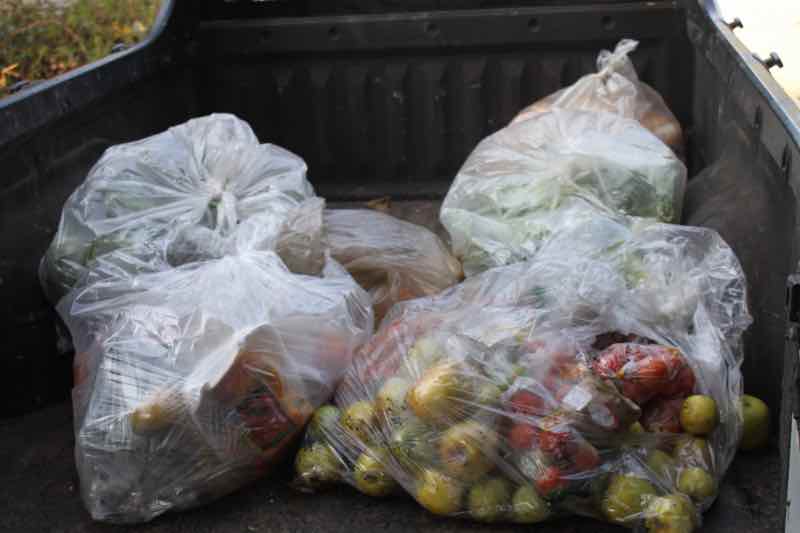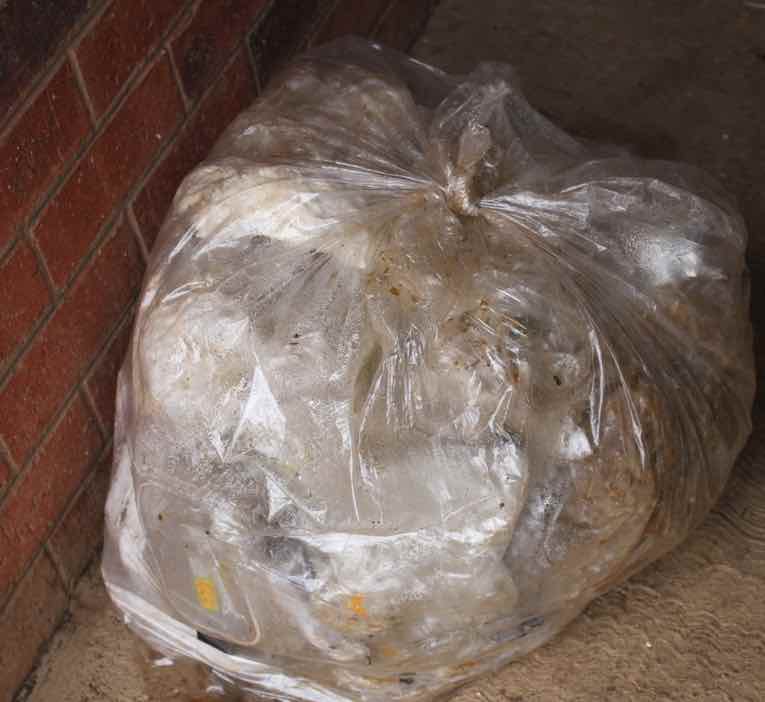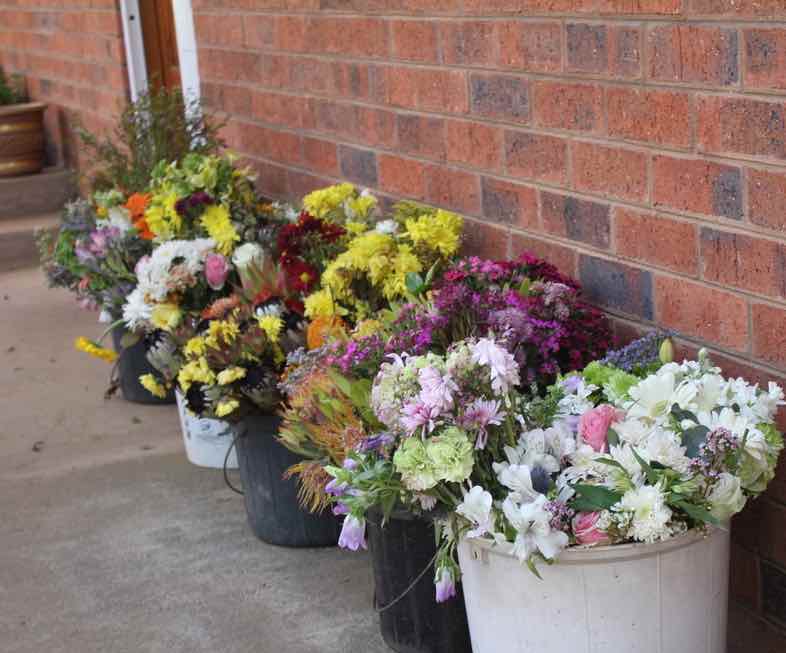| Back to Back Issues Page |
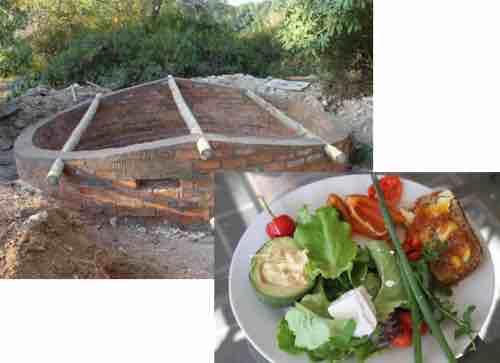 |
|
Reduce plastic waste September 24, 2020 |
DearReduce plastic wasteDirectives to reduce plastic waste may have bored us to tears but production and dumping continues to increase alarmingly. Greetings from Bernard Preston to this eighth email about how to create a cyan zone at your home; this week it is the greenie speaking. Cyan you will recall is a mixture of blue and green issues. The great Pacific Garbage Patch, now being called the eighth continent, has increased to three times the size of France and is growing at 10% per decade. Eventually it will be larger than North America. 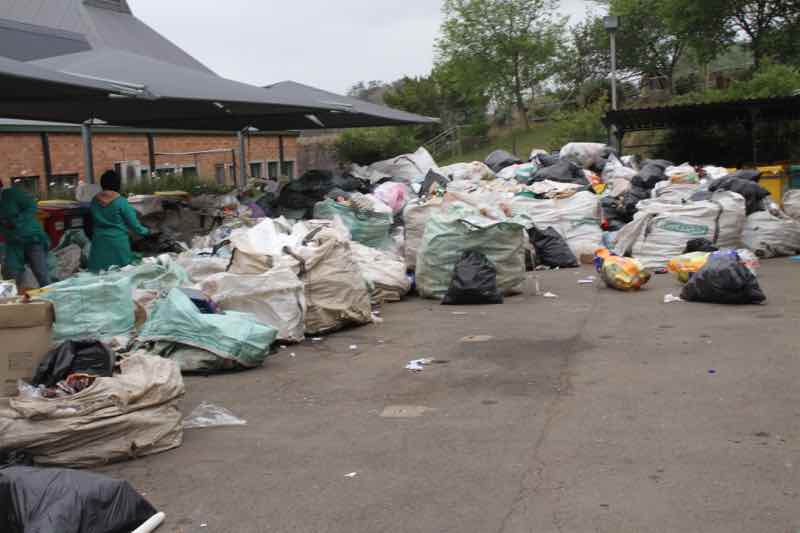 By 2050 it will be a third of the size of Texas unless we take urgent action.
By 2050 it will be a third of the size of Texas unless we take urgent action.
And it is having a profound affect not just on the environment but directly on our health. Did you know the average person is consuming about 5 grams of plastic per week just from our drinking water? That is the weight of a credit card; every seven days, and not including what finds its way into our bodies from the air and our food. Research from McGill University has found that the common teabag releases gazillions of nano-particles of plastic into every cuppa; literally. In total that adds up to nearly a pound a year. At a conference in the Netherlands this year, researchers said that it contributes directly to the explosion of autoimmune diseases that people like you and me are increasingly prone to.
We drink, eat and breathe in these nasty chemicals, embedded onto the plastic in ever increasing amounts; and are likely to become very ill. It is no longer just happening to others. You almost certainly know someone suffering from Lupus, MS or rheumatoid arthritis; and a host of others. There are of course many other causes. They have an additive and cumulative effect. At this stage no one has linked the coronavirus directly to plastic waste but those with impaired immune systems, for whatever reason, are far more prone to the infection progressing to a deadly cytokine storm.
We've heard it all before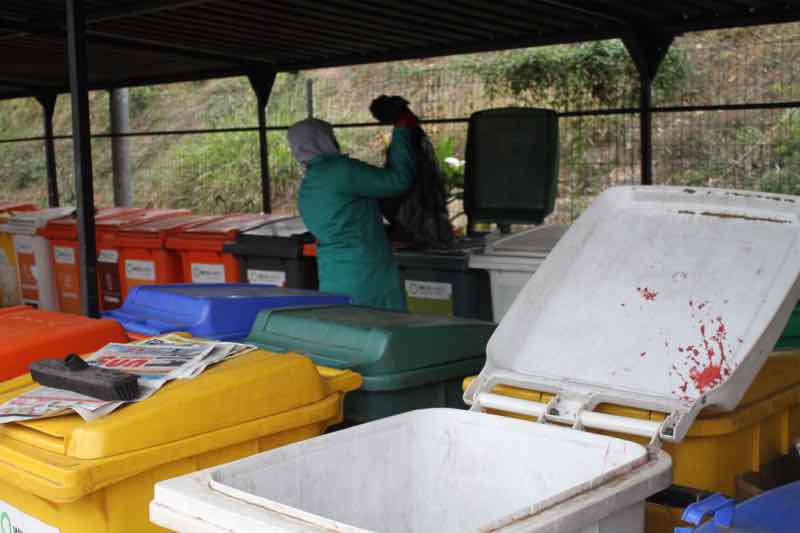 I am sure you like me are sick and tired of hearing the story about waste. Yet, despite all the rhetoric, the amount of new plastic being synthesized continues to expand rapidly.
I am sure you like me are sick and tired of hearing the story about waste. Yet, despite all the rhetoric, the amount of new plastic being synthesized continues to expand rapidly.
In South Africa, for example, it has increased by over twenty percent in the last ten years. In the rest of the industrial world it will be much the same. According to the journal Science, 1.3 billion tons of plastic is being dumped into landfills and water resources annually; and the weight entering the oceans is set to double in the next twenty years. Within just thirty years there will be a greater mass of plastic in our oceans than fish; they will be completely inedible by humans because they also are consuming it. Nano-particles are embedded in their flesh too. Immensely satisfyingReducing and reusing plastic has been for us immensely satisfying. We don't just recycle for reasons of guilt but from the altruistic delight in living and giving back; doing small things for our children. Their future is important to us.SynergyThere is a wonderful synergy of cyan living. As a disgust for plastic waste develops, so does the desire to recycle not just milk bottles but also glass and cans; paper and cardboard too.Then there is no dilemma about what needs to be done with that garbage that you know is going to end up in a fish's gills; or the groundwater that someone will be drinking.
Plastic micro-particles in the dust are a reality but far less than that in the reticulated and bottled water that we consume. Our personal choice is to drink only that harvested from the rain. Then there is virtually no chance of swallowing not only plastic, but also the toxins formed by the post-chlorination of organic compounds in our water; or from the cyanobacteria that are plaguing our dams and lakes. It also has the taste of a mountain spring.
Statistics are manipulatedLies and damn conspiracy theories abound. Plastic South Africa says it recycles nearly 50% of that produced. Our instincts after seeing the waste on street corners and in every stream-bed are correct; they don't include the imported stuff. The real figure is less than twenty percent.
Set you own goalsUsing and purchasing absolutely nothing made with plastic is obviously the target; but not even the most ardent green-peacer approaches that.If you are anything like us, you will feel very proud of yourself, and rightly so if you can halve the amount of plastic that you used to trash. The buzzwords are as follows. * refuse * reduce * reuse * recycle We refuse to purchase a watermelon that has been halved and sold, wrapped in plastic, for example. We would rather share the excess with family and friends. There again is another synergy; once the outer skin around fruit and vegetables has been broken, oxygen begins its work of decay. It loses both flavour and nutrient content. In general, try and avoid any foods that have been cut open. It applies to grain too; once the outer coating of the kernel has been cracked, the oils begin to oxidise. To enjoy the benefits of "real bread" as it is being called in the
UK, you have to grind your own flour.
“I alone cannot change the world, but I can cast a stone across the waters to create many ripples.”
- Mother Teresa.
Of straws and flowers
What effect will the pebble that we cast upon the waters have, when we started to recycle unsold flowers from the florist, separating out the cellophane, paper and rubber-bands? We return them to the seller for reuse. Pride comes before a fall, or perhaps we have already taken a tumble but we think the display at our front door makes a statement; these blooms were destined for the dump. Some have accused us of becoming dumpster divers; so be it. Without guilt we waste-pick to feed our worms and chickens; and adorn our front door.
“Where men are the most sure and arrogant, they are commonly gravely mistaken.” - David Hume Yes, it certainly does take time and effort; but the boost to your sense of actually having done something, instead of just complaining about all the waste, will do you no end of good. Try it, and write to me if I'm mistaken. Next weekNext week features a Blue Zone issue; something that will help you and me reach our nineties with all our marbles intact.Pass this newsletter on to friends and family, but only if you feel it is of value; we all get more than enough spam. And start thinking about how you could halve the amount of plastic you send to the dump.
Till next month, Bernie
|
| Back to Back Issues Page |
